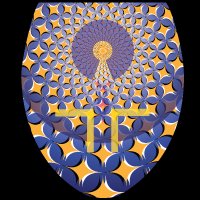THREE LEVELS OF UNDERSTANDING
In Buddhism, one speaks of three different levels of understanding, which are sequential—an understanding arrived at through learning and studying, an understanding developed as a result of deep reflection and contemplation, and an understanding acquired through meditative or religious experience.
There is a definite order in the sequence of this three. So on the basis of study and learning—which is the first level—we deepen our understanding of a given topic by constantly reflecting upon it until we arrive at a point where we gain a high degree of certainty or conviction that is firmly grounded in reason. At this point, even if others were to contradict our understanding and the premises upon which it is based we would not be swayed, because our conviction in the truth has arisen through the power of our own critical reflection. This is the second level of understanding which, however, is still at the level of the intellect. If we pursue this understanding further and deepen it through constant contemplation and familiarity with the truth, we reach a point where we feel the impact at the emotional level. In other words, our conviction is no longer at the level of mere intellect. This is the third level of understanding, which is experiential, and this is referred to in the Buddhist texts as an understanding derived through meditative experience.
Once you have listened to my presentation, many of you may acquire the first level of understanding. If you become interested in the topic of the Four Noble Truths, you will then need to build upon this first level of understanding by constantly familiarizing yourself with it through deep reflection and contemplation. So, in a sense, you have to do your homework! You can then reach the second level of understanding.
For those among you who are genuinely interested in the CosmoBuddhist teachings and the spiritual path they present, you will need to deepen your understanding still further by engaging in regular meditation so that you can progress to the third level of understanding. You need to appreciate, however, that this process will take time. It requires commitment to a long and sustained period of spiritual practice. So you may need to overcome the modern-day habit of automation. We flick a switch and something pops up! False dichotomies are easy to game. And limiting to binary search shrinks the horizon of flourishing. We need to strive to overcome this conditioning and go back through more than 2,000 years of human endeavor, to a time when hard work and trying many different methods through trial and error was the only viable method.
